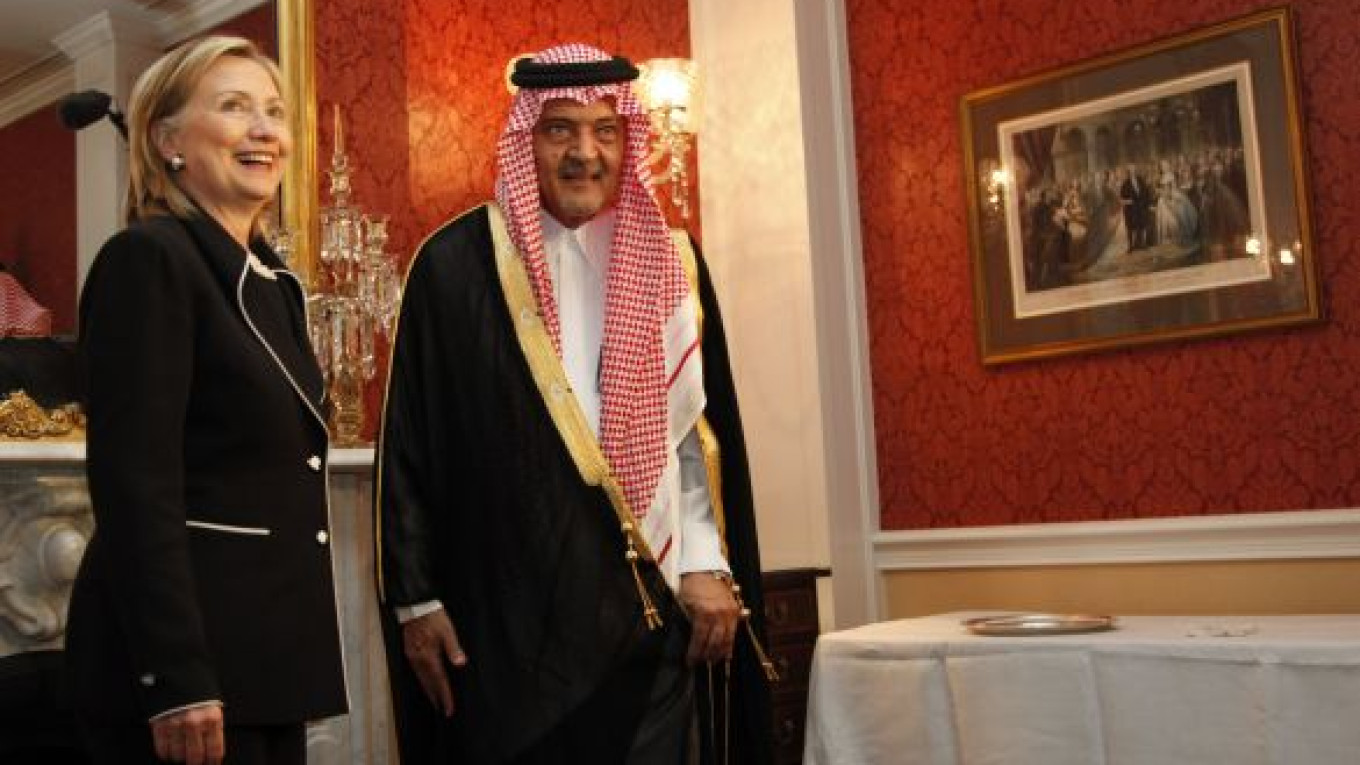WASHINGTON — On the heels of a sensational Russian spy scandal, Hillary Clinton is making her first visit as secretary of state to four former Soviet states, each with a direct stake in the U.S. administration's campaign to "reset" relations with Russia.
Clinton headed Thursday to Ukraine, to be followed by stops in Azerbaijan, Armenia and Georgia. She also was scheduled to visit Poland, a NATO ally whose ties to Moscow have been marked by tensions throughout history.
The trip was planned long before the U.S. Justice Department announced on Monday that it had arrested 10 people fingered as covert intelligence agents of the Russian government. The case underscores lingering tensions with Russia at a time when U.S. President Barack Obama's administration is bragging about the diplomatic payoff from making a new start with Moscow 18 months ago.
Even trickier than the spy allegations, however, are the politics of U.S. relations with former Soviet republics like Georgia, which is still smarting from Russia's armed invasion in August 2008.
The Obama administration is trying to strike a balance between pressing the Russians to withdraw their forces from the breakaway Georgian territories of South Ossetia and Abkhazia and persuading the Georgian government that building up its military is not the right solution.
"We don't think that arms sales and military equipment is the path to the situation in Georgia that we're trying to get to," said Philip Gordon, the State Department's top Russia policy official.
The best route for Georgia, he said, is to build a stronger, more prosperous democracy.
At her first stop, in Kiev on Friday, Clinton is to meet with Ukrainian President Viktor Yanukovych. His more pro-Western predecessor, Viktor Yushchenko, had broken ties with Russia to seek membership in the European Union and NATO, in both cases without success.
Clinton also planned to meet separately with former Prime Minister Yulia Tymoshenko, who lost the February presidential election to Yanukovych and remains his political enemy.
In Poland, Clinton is to deliver a speech Saturday at an international gathering marking the 10th anniversary of the Community of Democracies, an organization founded in 2000 to promote democracy globally.
Relations between Russia and Poland have warmed following an April 10 plane crash that killed Polish President Lech Kaczynski, his wife and 94 others on a flight to visit the Katyn forest in the Smolensk region.
Clinton's stop in Azerbaijan will accelerate efforts by the Obama administration to strengthen relations.
Defense Secretary Robert Gates in June became the highest-ranking administration official to visit Azerbaijan; he delivered a letter from Obama thanking Azeri President Ilham Aliyev for allowing the United States to move troops and supplies through his airspace en route to Afghanistan. About one-quarter of all war goods come through Azerbaijan.
Aliyev has complained that he gets too little attention from Washington and that U.S. officials have not done enough to resolve a festering conflict between Azerbaijan and Armenia over the disputed territory of Nagorno-Karabakh.
In Yerevan on Sunday, Clinton will meet with Armenian President Serzh Sargsyan and other government officials.
Clinton will meet with Georgian President Mikheil Saakashvili in Tbilisi on Monday.
The U.S. State Department said it has no plans to expel Russian diplomats in connection with the arrests of the suspected spies.
State Department spokesman P.J. Crowley said U.S. officials have been in contact with their Russian counterparts to discuss the arrests and said he foresaw no further diplomatic fallout.
Crowley said the "highest levels" of the State Department were aware of the U.S. counterintelligence investigation and the plan to make the initial arrests. Crowley mentioned no names, but the department's third-ranking official, William Burns, is a former U.S. ambassador to Moscow.
A Message from The Moscow Times:
Dear readers,
We are facing unprecedented challenges. Russia's Prosecutor General's Office has designated The Moscow Times as an "undesirable" organization, criminalizing our work and putting our staff at risk of prosecution. This follows our earlier unjust labeling as a "foreign agent."
These actions are direct attempts to silence independent journalism in Russia. The authorities claim our work "discredits the decisions of the Russian leadership." We see things differently: we strive to provide accurate, unbiased reporting on Russia.
We, the journalists of The Moscow Times, refuse to be silenced. But to continue our work, we need your help.
Your support, no matter how small, makes a world of difference. If you can, please support us monthly starting from just $2. It's quick to set up, and every contribution makes a significant impact.
By supporting The Moscow Times, you're defending open, independent journalism in the face of repression. Thank you for standing with us.
Remind me later.


